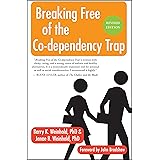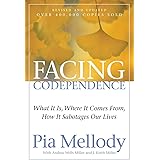The intricate world of addiction often hides in plain sight, impacting individuals and families from all walks of life. As highlighted in the accompanying video featuring family therapist David Peters, the story of former San Diego Mayor Maureen O’Connor’s billion-dollar gambling addiction brought a shocking reality to the forefront. Such cases underscore the critical need to understand the complex medical facts and psychological triggers behind problem gambling, an issue that touches countless San Diego families and communities nationwide.
The Pervasive Reach of Problem Gambling
Gambling addiction, or compulsive gambling, is far more widespread than many realize, often operating silently within households. It’s a compulsive behavior that can cause immense damage, tearing families apart and leading to significant financial and emotional distress. Initially, family members might seek help for seemingly unrelated issues, only for a gambling addiction to emerge as the underlying core problem during diagnosis.
While local casinos contribute to the vulnerability of certain populations, the internet has dramatically expanded access to gambling. Consequently, online gambling platforms now pose a significant threat, allowing individuals to engage in addictive behaviors from the privacy of their homes. This digital accessibility means that anyone with a computer can develop a gambling addiction, even without setting foot in a physical casino.
Unpacking the Roots of Gambling Addiction
Understanding the origins of problem gambling is crucial for effective intervention and treatment. Addictions and compulsive behaviors are rarely monolithic, often stemming from a confluence of factors unique to each individual. These can include deeply ingrained personality characteristics, some of which may have genetic roots.
Furthermore, early childhood development plays a significant role. Traumatic experiences such as abuse, neglect, or unresolved grief can inadvertently teach a person to seek external methods to cope with internal pain. Imagine if a child learned that certain behaviors temporarily numbed feelings of anxiety or depression; this coping mechanism could later evolve into a dependence on addictive activities like gambling.
The discussion around a brain tumor potentially causing addiction, as mentioned in the case of Maureen O’Connor, highlights the complex interplay between physical health and mental health. While difficult to prove definitively in specific cases, brain tumors can indeed cause profound changes in personality and overall brain functioning. This possibility underscores how the intricate nature of the brain influences our behavior in unpredictable ways, making each case of gambling addiction uniquely challenging.
Identifying the Telltale Warning Signs
Recognizing the signs of a gambling addiction is a critical first step towards seeking help. Often, problem gambling doesn’t exist in isolation; it frequently co-occurs with other addictive behaviors. Individuals with gambling compulsions might also struggle with alcoholism, nicotine addiction, drug use, or eating disorders, forming what are sometimes referred to as “addictive personality” clusters.
However, not all cases fit this pattern. Sometimes, the addiction begins with the sheer thrill and excitement of gambling itself. When a person wins, the brain releases dopamine, a powerful neurotransmitter responsible for feelings of pleasure and reward. This immediate “dopamine hit” creates a powerful positive reinforcement loop, making the act of gambling intensely pleasurable and, consequently, highly addictive.
Consider a hypothetical scenario: a person experiences a significant win, triggering an intense rush of dopamine. They might then chase that feeling, believing another big win is just around the corner, even as losses accumulate. This pursuit of the “feel-good” sensation becomes a powerful driver, obscuring the growing financial and personal consequences of their gambling addiction.
The Medical and Neurological Underpinnings of Compulsive Gambling
The question of whether addiction is a medical or psychological problem often arises, and the answer is that these aspects are inextricably intertwined. What transpires in our minds is directly reflected in our brains. Therefore, understanding the neurology behind addiction is key to developing effective coping strategies.
As David Peters explains, when certain neurons in the brain fire together repeatedly, they effectively “wire together,” forming strong neural pathways. This process means that once a thought about gambling or a temptation arises, it can be incredibly difficult to shift away from that ingrained behavioral pattern. The brain becomes accustomed to the addictive behavior, making it challenging to resist.
For individuals struggling with problem gambling, the strategy often involves becoming better observers of their own emotional states and thoughts. By noticing the early warning signs—the creeping temptation or rising anxiety—they can proactively intervene. Imagine if, at the first flicker of temptation, a person recognizes the pattern and consciously chooses an alternative action, such as contacting a support person, writing in a journal, or engaging in physical exercise. This conscious shift, prior to succumbing to the addictive behavior, is a vital step in breaking the cycle of compulsive gambling.
Societal Responsibility and the Path Forward in Addressing Gambling Addiction
The prevalence of gambling opportunities, particularly in areas like San Diego County with its numerous casinos, sparks an important societal debate. While casinos often contribute to programs that aid gambling addicts, the philosophical challenge remains: what is the societal responsibility when readily available avenues for addiction exist? The easy access to gambling can create significant risks for individuals already vulnerable to addictive behaviors.
Consequently, many individuals can find themselves losing substantial amounts of money, potentially wiping out family incomes and even devastating family structures. This situation highlights the ongoing need for a collective discussion about the balance between entertainment, economic benefit, and public health. Addressing the widespread impact of gambling addiction requires not only individual treatment but also broader community awareness and preventative measures to protect vulnerable populations from this challenging issue.











